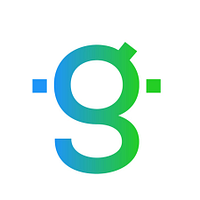This position is posted by Jobgether on behalf of a partner company.
We are currently looking for a Community ML Research Engineer, non-AI scientific fields, in EMEA.
This role offers the opportunity to merge scientific research with applied machine learning, helping non-AI fields like biology, physics, or chemistry leverage modern ML tools. You will act as a technical generalist, designing and optimizing data pipelines, developing ML solutions, and collaborating directly with researchers to create impactful tools and resources. The position involves a combination of hands-on engineering, dataset management, and community engagement to lower barriers for ML adoption in traditional sciences. You will work on distributed and high-performance computing systems, co-author open-source resources, and explore diverse scientific datasets. This role thrives in a flexible, collaborative environment where innovation, adaptability, and technical problem-solving are highly valued.
Accountabilities:
- Build, optimize, and maintain datasets and data pipelines for scientific applications, focusing on high-performance, distributed environments.
- Develop, adapt, and deploy ML tools to address real-world challenges across multiple scientific domains.
- Collaborate with non-AI scientific communities to co-design solutions, publish datasets, and create open-source resources.
- Engage with researchers and institutions to identify high-impact opportunities and contribute to strategic initiatives.
- Prototype, iterate, and experiment with ML approaches tailored to domain-specific problems.
- Provide technical guidance and support for scientific teams integrating ML into their workflows.
Requirements
- Strong experience in scientific data engineering, dataset management, or pipeline optimization, particularly in distributed or HPC environments.
- Hands-on experience with fast-reads, large-scale data processing, and cross-filesystem data access.
- Background in non-AI scientific domains such as biology, physics, chemistry, or quantum research.
- Experience collaborating with research communities to translate scientific needs into technical solutions.
- Proficiency in Python or other programming languages for scientific computing and ML tooling.
- Familiarity with ML workflows, data preprocessing, and model deployment in research contexts.
- Excellent problem-solving, communication, and collaboration skills.
- Adaptability to ambiguous, fast-paced, and exploratory environments.
- Bonus: contributions to open-source projects, publications, or community tutorials.
Benefits
- Competitive salary and equity opportunities.
- Flexible remote work options with occasional on-site collaboration as needed.
- Comprehensive health, dental, and vision coverage.
- Professional development support, including conferences, training, and educational reimbursement.
- Paid parental leave and generous paid time off.
- Opportunity to shape ML adoption in scientific research and contribute to open-source initiatives.
- Collaborative and inclusive work culture that values diversity, equity, and continuous learning.
Jobgether is a Talent Matching Platform that partners with companies worldwide to efficiently connect top talent with the right opportunities through AI-driven job matching.
When you apply, your profile goes through our AI-powered screening process designed to identify top talent efficiently and fairly.
🔍 Our AI evaluates your CV and LinkedIn profile thoroughly, analyzing your skills, experience, and achievements.
📊 It compares your profile to the job’s core requirements and past success factors to determine your match score.
🎯 Based on this analysis, we automatically shortlist the 3 candidates with the highest match to the role.
🧠 When necessary, our human team may perform an additional manual review to ensure no strong profile is missed.
The process is transparent, skills-based, and free of bias — focusing solely on your fit for the role.
Once the shortlist is completed, we share it directly with the company that owns the job opening. The final decision and next steps, such as interviews or additional assessments, are then made by their internal hiring team.

